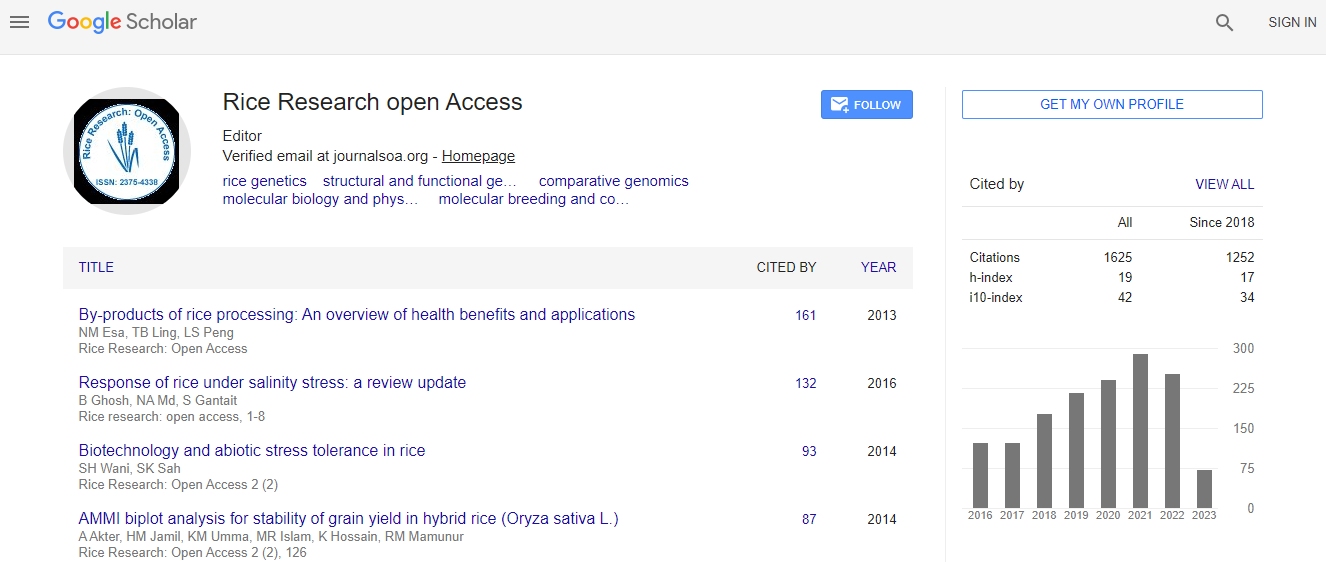The Effect of Soil Salinity on Rice Growth and Yield in Coastal Areas: A Comprehensive Study
*Corresponding Author:Received Date: Sep 02, 2024 / Published Date: Sep 28, 2024
Copyright: © 0 . This is an open-access article distributed under the terms of the Creative Commons Attribution License, which permits unrestricted use, distribution, and reproduction in any medium, provided the original author and source are credited.
Abstract
Soil salinity is a major constraint for rice production in coastal regions, affecting germination, growth, and yield. This study investigates the impact of varying levels of salinity on rice growth parameters, physiological traits, and yield components in coastal areas of Southeast Asia. Field trials were conducted with different salinity treatments, and data on plant height, tillering, root biomass, and grain yield were collected over two growing seasons. Results showed that moderate salinity reduced growth, but salt-tolerant rice varieties demonstrated improved performance compared to conventional varieties. The findings suggest that selecting salt-tolerant cultivars and employing salinity management practices are key to improving rice productivity in affected regions.

 Spanish
Spanish  Chinese
Chinese  Russian
Russian  German
German  French
French  Japanese
Japanese  Portuguese
Portuguese  Hindi
Hindi 
